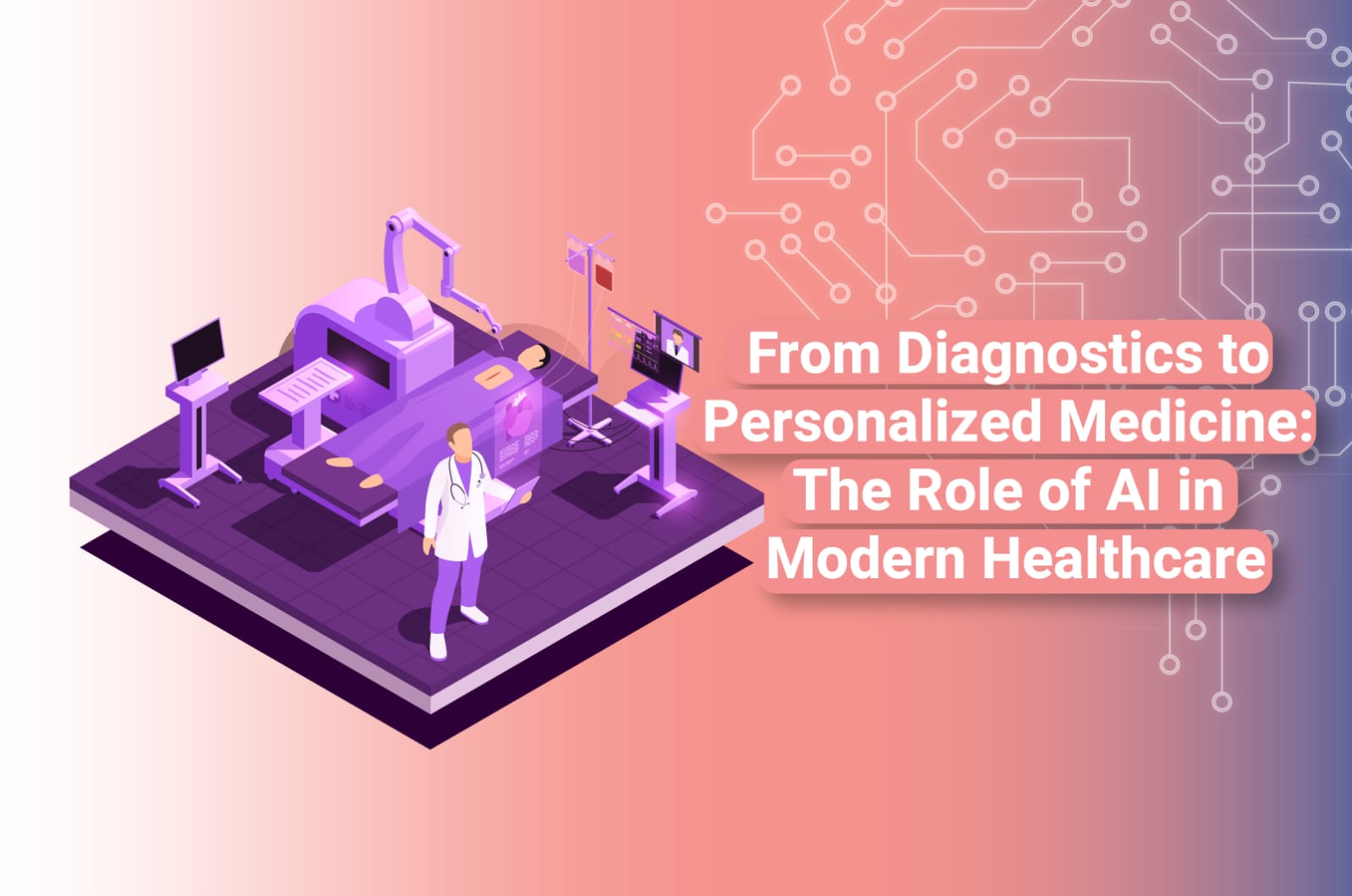Artificial Intelligence (AI) has significantly impacted many industries, but healthcare is where its influence is felt the most intensely. From diagnostics to patient management, AI is now at the forefront of how we approach health and medicine.
According to a 2024 report by Grand View Research, the global AI in healthcare market is expected to reach $187.7 billion by 2030, registering a compound annual growth rate (CAGR) of 38.5% from 2024 to 2030.
Furthermore, a study in The Lancet Digital Health found that AI can diagnose diseases with accuracy rates comparable to healthcare professionals, showcasing AI’s transformative potential in diagnostics.
Here is a deep insight into the top 10 ways AI is making all the difference:
- Medical Imaging and Diagnostics
AI has exponentially improved the speed and precision of medical imaging. With the ability to process X-ray, MRI, and CT scan images for abnormality identification, algorithms tend to exhibit superior capability compared to traditional approaches.
For example, AI can detect early signs of diseases like cancer, often before they are noticeable to the human eye, enabling earlier and more effective treatment.
A study by MIT revealed that AI systems could reduce diagnostic errors by up to 50% in mammography.
- Personalized Medicine
AI-powered personalized medicine considers genetic profiles, lifestyle data, and environmental data in the creation of treatments specifically designed for individual patients. This approach improves outcomes since patients receive the most effective therapies based on their unique characteristics.
A report by McKinsey & Company stated that personalized medicine has the potential to improve patient outcomes by 30-40%
- Drug Discovery and Development
Drug discovery and development processes are known to be lengthy and costly. AI accelerates this process by predicting how different compounds will behave and picking out promising candidates for further development.
This will save many lives by bringing life-saving drugs to market much faster and more cost-effectively. According to the Journal of Chemical Information and Modeling, AI has reduced drug discovery time by 75% in some cases.
- Predictive Analytics
AI’s ability to analyze vast amounts of data helps healthcare providers predict patient outcomes more accurately. Predictive analytics can foresee disease outbreaks, identify patients at risk of chronic conditions, and even predict which patients are likely to be readmitted to the hospital.
This allows for proactive interventions that improve patient outcomes and reduce costs. The Society of Actuaries found that 93% of healthcare executives believe predictive analytics is essential for the future of healthcare.
- Virtual Health Assistants
AI-powered virtual health assistants give patients access to immediate medical information and advice. They answer health-related questions, remind patients to take their medications, and even schedule appointments.
By providing support outside traditional office hours, they improve patient engagement and adherence to treatment plans. Gartner predicts that by 2025, 50% of healthcare providers will invest in AI-powered virtual health assistants.
- Robotic Surgery
The operating room has been revolutionized by robotic, AI-guided surgery. These robots offer greater precision and control than human surgeons, reducing the risk of complications and speeding up recovery times.
AI also assists in pre-surgical planning by analyzing patient data to suggest optimal surgical approaches. According to a study published in the Annals of Surgery, robotic surgery can reduce postoperative complications by up to 40%.
- Administrative Workflow Automation
AI streamlines administrative tasks, such as patient scheduling, billing, and record keeping. By automating these processes, healthcare providers can reduce administrative burdens, minimize errors, and free up more time for patient care.
This leads to more efficient operations and improved patient satisfaction.
- Telemedicine
AI enhances telemedicine by improving diagnostic accuracy and patient monitoring. AI-driven platforms can analyze patient data from remote consultations and provide insights to physicians, enabling high-quality care even at a distance.
This is particularly beneficial for patients in rural or underserved areas. According to a report by Grand View Research, the telemedicine market is expected to grow at a compound annual growth rate (CAGR) of 17.2% during 2023-2030, driven by AI innovations.
- Genomics and Precision Health
AI plays a crucial role in genomics by analyzing genetic data to identify predispositions to diseases and suggest preventive measures, allowing for more personalized and effective healthcare interventions.
The National Institutes of Health (NIH) stated that AI has significantly improved the accuracy of genetic data interpretation by up to 90%.
- Patient Monitoring and Wearable Technology
AI-powered wearable devices continuously monitor patients’ vital signs and health metrics, detecting irregularities in real-time and alerting healthcare providers to potential issues before they become serious.
This continuous monitoring improves patient outcomes and reduces the need for hospital visits. A study published in Nature Medicine found that AI-powered wearables could predict heart disease with 95% accuracy.
Conclusion
AI is undeniably transforming healthcare, making it more efficient, accurate, and personalized. As technology continues to advance, we can expect even more groundbreaking innovations that will further improve patient care and outcomes. Embracing these AI-driven changes is essential for the future of healthcare.
